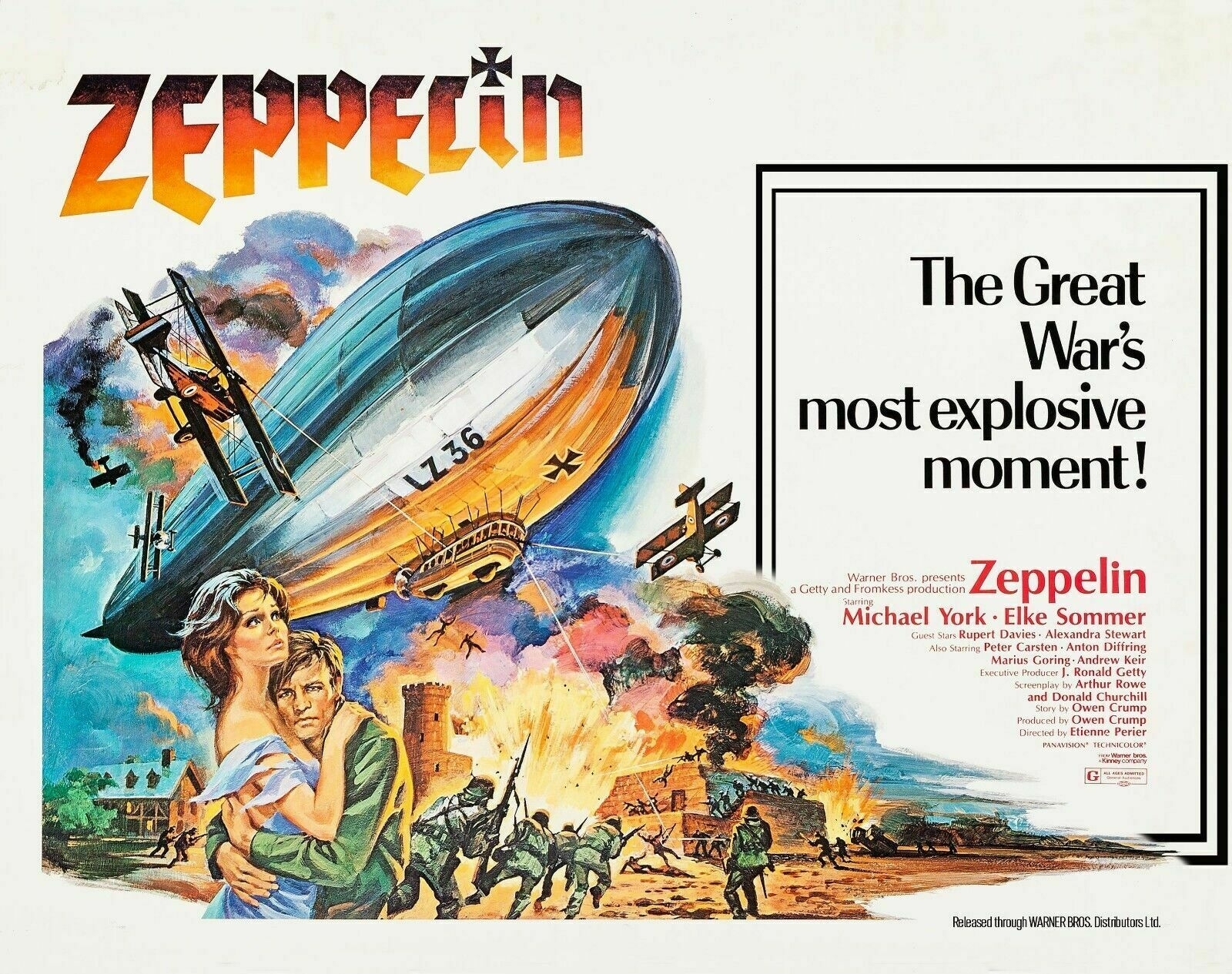What comes after content?
A few weeks ago I happened to win a voucher for the mainstream cinema chain in Sydney where I live.
I checked what was showing, and as a result didn’t even bother claiming the voucher. The kind of ‘top’ movies on offer are really not what I could imagine enjoying. Even if I did enjoy Marvel superhero movies, I can’t imagine wanting to see 45 of them (Wikipedia).
The decline of cinema is a bit sad, because I’ve loved going to the movies ever since the days when my aunt took me to see The Jungle Book, and since my dad took himself (and me) to the first Star Wars movie, and since even before that, my grandmother accidentally took me to see a war movie called Zeppelin. We were the only two people in the darkened village hall, but still, the sight of burning airships dropping from the sky was quite the deal for a seven-year-old.

I thought of this experience while reading an article by Justine Bateman entitled Hollywood is dead. It’s a shame to announce this death, and her take is a little overly-nostalgic. I mean, Hollywood was always a ruthless money-making monster. All the same, her prognosis seems accurate enough.
But what killed it, I hear you ask. The author’s opinion is that ‘content’ killed Hollywood. And yes, I’ve been negative about ‘content’ myself. If we’re not making content what are we making?
According to Justine Bateman, not only has ‘content’ dominated Hollywod, now the production of ‘content’ is being automated by AI in a creative death-spiral. In short the movies are turning to slop and as a result, the AI Grim Reaper is now knocking on Hollywood’s door.
But there’s light at the end of the tunnel, she says. People are soon going to reject the AI ‘content’ slop bucket and look for something else: something that’s better because it’s more human. Bateman predicts:
“filmmakers will have to differentiate their work from that which AI can easily imitate. That means they will make unique, raw, and creatively daring work.”
Not only that, but audiences will rebel against AI in their wider lives and certainly reject it in the movies: “They will want something real, raw, and obviously human.”
If she’s right (and that’s a big ‘if’) this means that what we’re moving towards is something completely new and different. We’ve been wrong about AI. AI isn’t the start of a new era but rather the final scene of the old era. And it’s not only movies, there’s books and music too.
So what lies just beyond?
“the birth of the most incredible creative genres we’ve ever known. It will be new to us in the way jazz or rock and roll were new at the time, or French new wave films were back then. However, this will not be a return to anything from the past, but be something entirely new. Just The New.”
I’m mentioning all this because I think the argument also stands for writing generally.
I believe we’re on the cusp of a seismic change in the culture every bit as significant as the shift around 1910 when it was suddenly impossible to be a Victorian any more1. Just as no one can be Charles Dickens these days, very soon, no one will be able to market anything that looks like what AI could produce. Sure, we’ll make use of AI tools in the background, but readers, listeners and viewers won’t accept what AI offers unless it has first passed through the distinctively human creative imagination.
Ultimately this is just the iron hand of fashion. What looks cutting edge today will date very quickly, so that before long AI will be what you won’t be seen dead wearing.
Things are going to be very different. And I agree with Justine Bateman when I say: more than ever, embracing our humanity is the way forward.
Her three-word manifesto, “Just The New”, has clear echos of the poet Ezra Pound’s late-to-the-party summary of the modernist movement, “Make it new”. Ironically we’ve been here before, in 1928, nearly a century ago. But then Pound was hardly being original. He was paraphrasing an old Chinese text from the 12th century.
Novelty is like that: everything’s new, but it’s made from the old pieces we find lying around us.
What comes after content isn’t really new at all. It’s the oldest thing we know: our desire to connect with another person’s imagination. When we get tired of supposedly ‘perfect’ AI creations, we’ll go back to loving the beautiful mistakes that make human art special. And this will happen sooner than we may expect.
The future belongs to artists and writers who remember what makes us human - our messiness, our feelings, our strange ideas. In a world over-run by AI, being truly human might be a competitive advantage or it might not, but it’s what we’ve got.
References:
Michael North, 2013. Novelty. A History of the New. University of Chicago Press.
Stansky, Peter, 1997. On or about December 1910: Early Bloomsbury and Its Intimate World. Studies in Cultural History. Cambridge, Mass. London: Harvard University Press.
Don’t forget to subscribe to the weekly email digest. It’s exactly like an exclusive club to which you’re exclusively invited.
But you still just get a weekly email, sorry.
-
as Virginia Woolf famously claimed, about 15 years later ↩︎